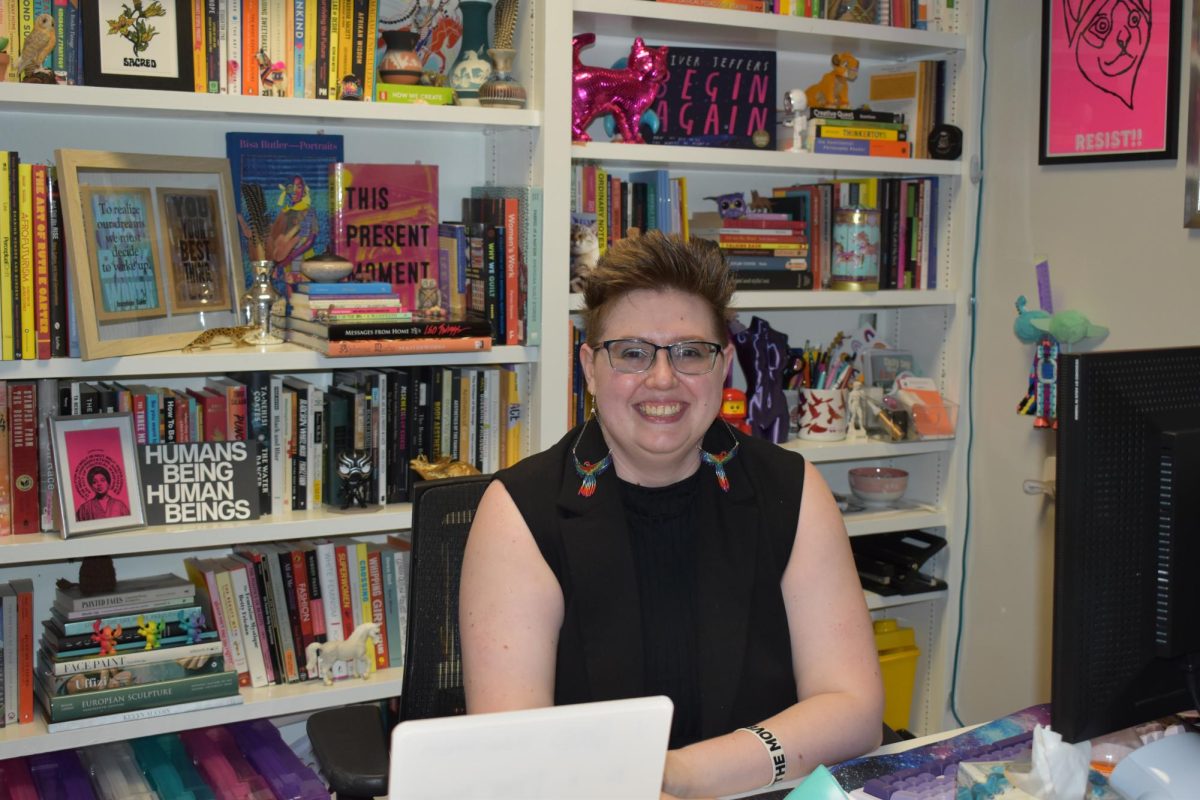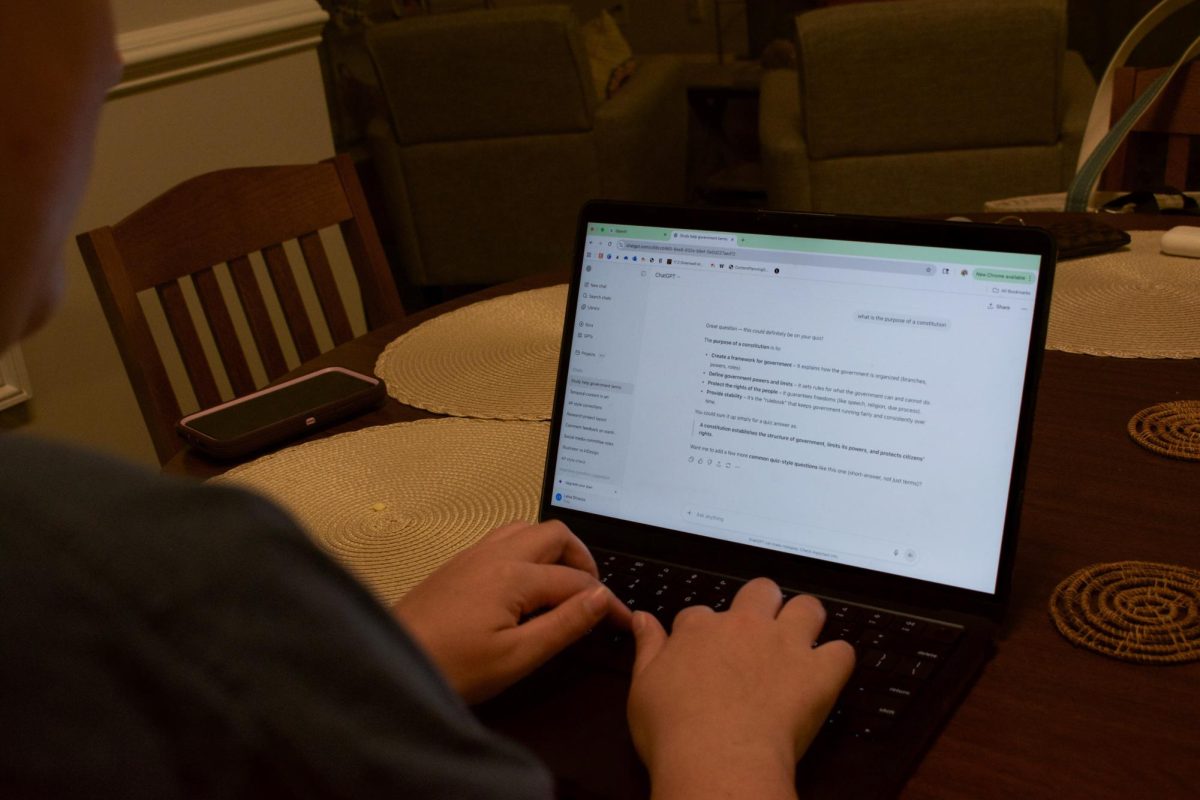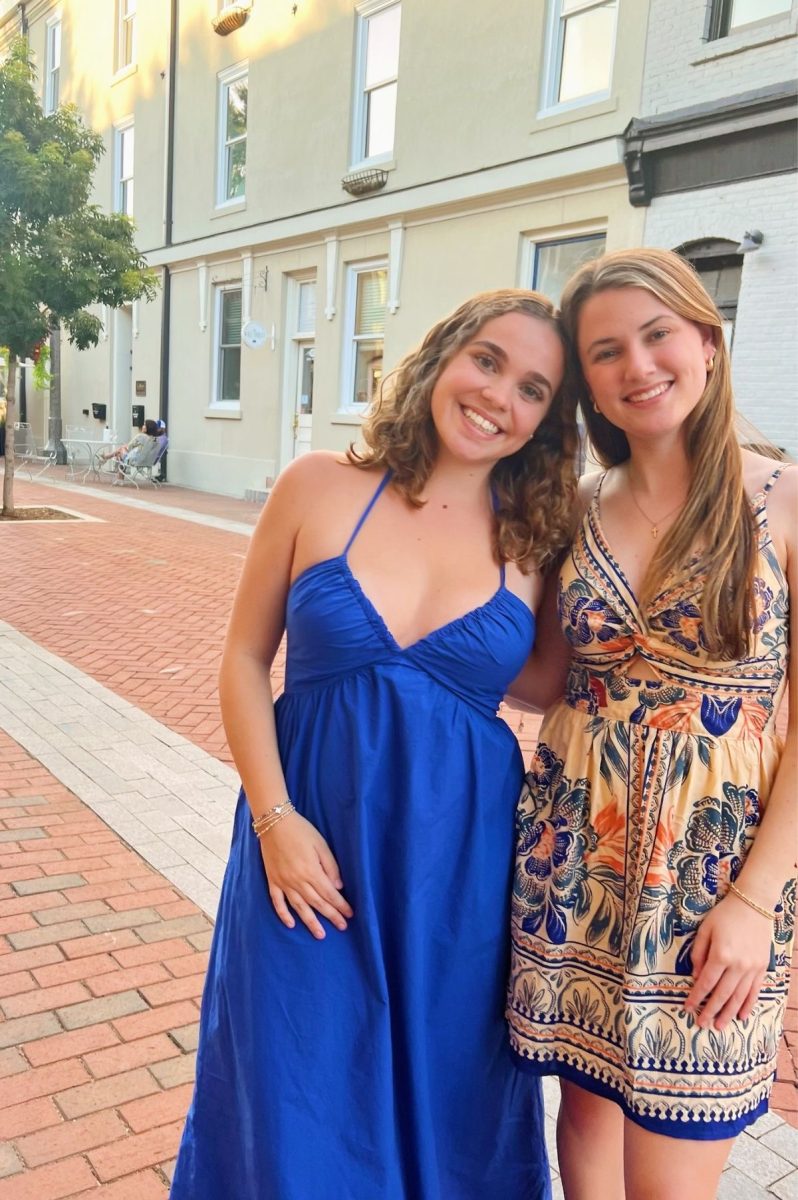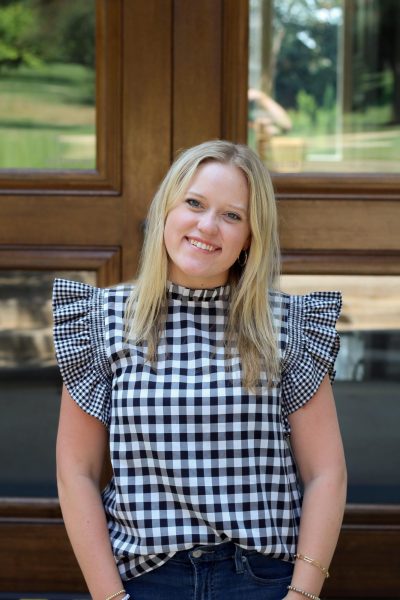The Chapman Lecture series is a series of academic lectures which are held annually and hosted by the Chapman Family faculty. Clayton Whisnant is the Chapman family professor of humanities specializing in history, and Karen Goodchild is a Chapman family professor of humanities in the art history department.
The Chapman Family professors have been hosting speakers for academic talks annually since 2016. The Chapman lecture held on Mar. 7 in Leonard Auditorium was a combined event held between the Chapman family professors and the AI working group.
The Wofford AI working group was formed in the Fall 2023 semester. The group contains faculty, staff and student representatives, selected by Campus Union. The group aims to research the role of artificial intelligence in higher education and determine how Wofford should respond to these changes.
In a joint effort between the Honor Council and the AI Working Group, faculty recently approved changes to the honor code based on artificial intelligence technologies.
At the end of the academic year, the working group wants to develop a plan addressing changes in curriculum and campus policies surrounding AI usage and academic integrity. Their first draft of their strategic plan was due April 9.
The working group has hosted two other speakers discussing AI earlier this academic year. In addition, they have also conducted interviews with each department and have conducted a campus wide survey on AI.
Wofford students and faculty were present at the alignment problem lecture, as well as faculty and staff from Spartanburg Methodist College, Anderson University and Converse University.
Brian Christian was this year’s Chapman lecturer. Christian is an author and holds degrees in philosophy, computer science and poetry from Brown University and the University of Washington.
“The Alignment Problem” is Christian’s newest book and discusses the tension between the goal of artificial intelligence, or what humans want AI to do, and the specific instructions we give those technologies. There is often a disconnect between the input material, calculations and the desired outcome.
Regarding the discussion of AI technologies, Christian asserts that we need to ask ourselves, “what drives us, what do we want and what do we value?”
“These technologies push us to ask the questions that we should be asking anyway,” said Kimberly Hall, associate professor of English and chair of the AI working group.
According to Christian, higher education needs to respond to the changes being initiated by artificial intelligence. One of the ways they can respond is by shifting the emphasis from content to relationship and changing the role of the educator to a mentor.
Christian also address the fact that higher education itself has its own alignment problem. An example of this is when professors teach to the test. He encourages professors to look into performance metrics and how educators measure progress.
After these changes are made, undergraduate education should look more like postgraduate education and be more interdisciplinary in nature.
“I really appreciated his comments at the end about what higher education needs to do now because I think that is the focus of the AI working group, but is also (important as) a professor and someone that believes very deeply in the mission of a liberal arts college,” Hall said.
The ideas felt doable and interdisciplinary. The suggestions made by Chrisitan are connected to the goals Wofford is already working toward as a liberal arts college that is working to address AI.
Hall recommends that students read Christina’s first book, titled “The Most Human Human: What artificial intelligence teaches us about being alive,” where Christian looks into the human connection to artificial intelligence technologies.
The AI working group wants to host more events for students in following weeks. If any student has any ideas on events they want to see regarding AI, please email Hall at [email protected].
































